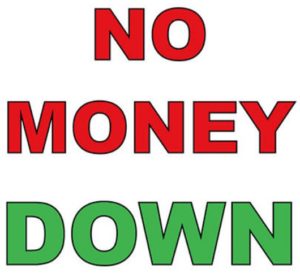There is an old phrase, “100% of bankruptcies result from a debt.” In order to avoid defaulting on a debt, you must have reliable income that is high enough to pay the monthly interest plus pay back the principal balance. Everybody knows this. Unfortunately, so few seem to take this into consideration when making a purchase on credit. How about a couple examples…
I was getting gasoline this week and the guy in front of me needed 2 credit cards to buy his $20 in gas and a cheap lunch. His first credit card could only fit $11 on it and his second card could barely fit the remainder. He was chatting with his friend about where his money went. He was strapped because he had just purchased two items for his car: a sound amplifying exhaust tip and an add-on turbocharger. While they may be fun, if they are not affordable he may never be able to dig his way out of his debts.
A few years ago, a friend’s neighbor was really excited when he started making overtime at work for a new project. First he bought a new car, then a new fishing boat, and finally a new ATV. A year and a half later, the project finished and so did all of the overtime pay. One by one, his new toys were repossessed by the repo man. He had purchased all of them with borrowed money that he was unable to support without the overtime pay. Understand: by making the most money he had ever earned in his life, he was left financially worse off with bad credit. It sounds impossible but this same phenomenon occurs to the majority of lottery winners and professional athletes as soon as they retire. The lesson is always the same: if you cannot manage money then receiving more money will magnify and exacerbate your mismanagement.
Small businesses are not immune to the temptation of inappropriate debt. A small business owner asked me if I knew anyone that would loan him $31,750 to make payroll. I told him, “The business is already insolvent and you won’t have the cash for any subsequent payroll payments. Your own business plan shows you need cash to cover +5 months of expenses and you have zero in the bank. Close the doors now and find another way to rebuild because this one has already gone off the cliff.” He ignored obvious reality, borrowed for 4 more payrolls and then closed the company – with a needless and additional $127,000 in debt that he could never repay.
Whether you’re buying iced-tea and a burrito at a gas station, or making a payroll payment to employees, the decision-making is the exact same. Your income must be high enough to support the loan repayment, plus interest, with on-time payments. Only by using the foundations of financial literacy can anyone create a sustainable financial plan that illuminates what is and is not affordable to purchase.

